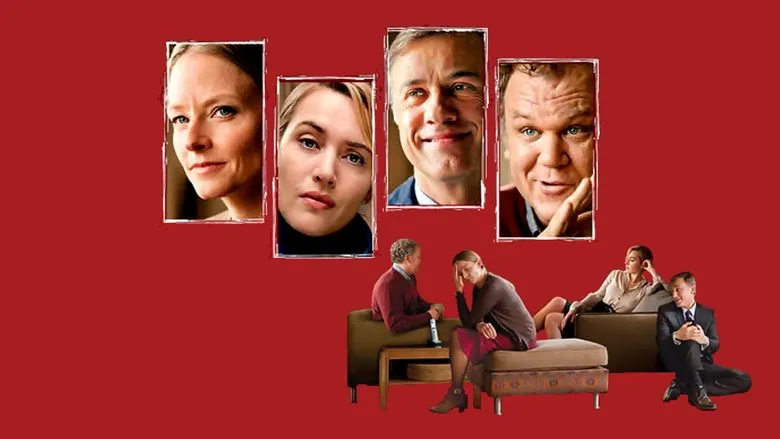Carnage: A Dark Comedy of Manners
A playground altercation escalates into a full-blown adult meltdown in Roman Polanski’s “Carnage.” The film opens with a simple act of childhood aggression: one boy calls another a snitch, and the accused retaliates with a stick to the face. What follows is an attempt by the parents to navigate the aftermath, initially with polite conversation and intentions of reaching a civilized agreement on moral compensation.

However, the veneer of civility quickly crumbles as the evening progresses. Tea and homemade pie give way to strained pleasantries (“Where did you get those lovely curtains?”), which in turn devolve into arguments, outright brawls, and even a rather public display of indigestion. All of this is brought to life by a cast of three excellent actors and one truly exceptional one.
From Stage to Screen: A Political Commentary?
“Carnage” feels like a commentary on more than just parental squabbles. One might see it as a reflection of Polanski’s own situation – a European filmmaker under house arrest, facing potential extradition to the United States. The film, adapted from a French play, takes on a new dimension when viewed as a critique of the American legal system.
Polanski adds a prologue and epilogue to the original play, framing the story with the initial children’s fight and a subsequent reconciliation. These scenes are shot in a detached, almost documentary style, reminiscent of social dramas like Michael Haneke’s “Hidden” or Ruben Östlund’s “Play.” This stylistic choice sets the stage for a potentially harsh and unflinching examination of human behavior.
The Illusion of Civility
However, the film ultimately focuses on the adults and their descent into petty, pathetic squabbling. They invoke lofty ideals like Christian humanism, pharmaceutical ethics, and the plight of the starving in Africa, all while failing to address the core issue at hand. Meanwhile, the children have already moved on, seemingly unfazed by their earlier conflict. This contrast raises questions about the nature of adult conflict and the hypocrisy of societal expectations.
The film also invites parallels to Polanski’s own legal battles, particularly the persistent pursuit of him for past offenses, even after his victim has pleaded for the case to be dropped.
Unlikable Characters, Uncomfortable Truths
The couples in “Carnage” represent two of the least sympathetic segments of Western society: bourgeois individuals pretending to be bohemian and middle-class families who have acquired wealth and believe they’ve ascended the social ladder. Jodi Foster embodies the worst aspects of the self-righteous American, constantly meddling in the affairs of others. Her character, the mother of the injured boy, is a writer who crafts novels at a coffee table adorned with art books.
In contrast, Kate Winslet’s character, the mother of the aggressor, serves as a kind of alter-ego for the director. She initially vomits on the assembled group before launching into a scathing monologue, declaring, “As for your human rights, you can wipe your ass with them.” The fathers, a hardware store owner and a high-powered lawyer, are relegated to supporting roles, although Christoph Waltz, as the lawyer, steals every scene with a single, dismissive glance. Given that he is the only European among them, Polanski’s pointed jabs become even more blatant, crude, and darkly humorous.hakina